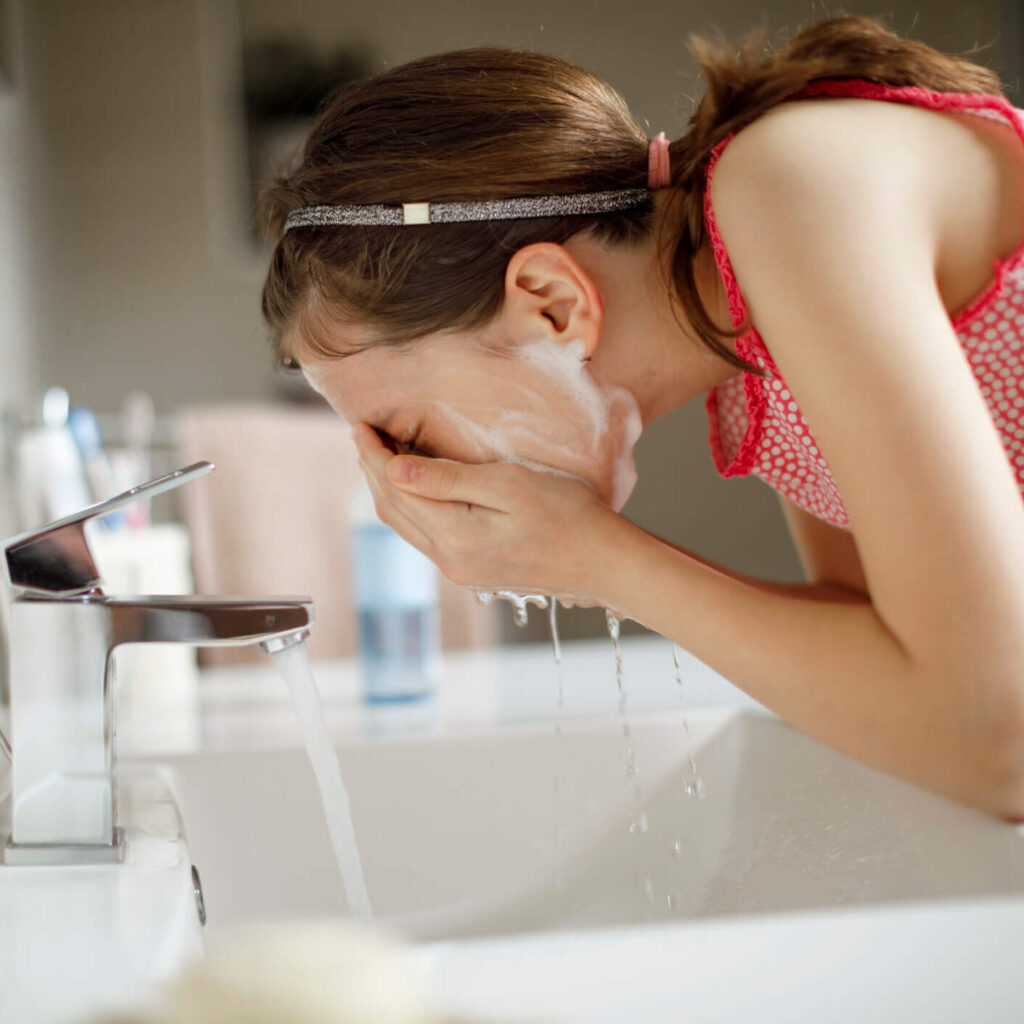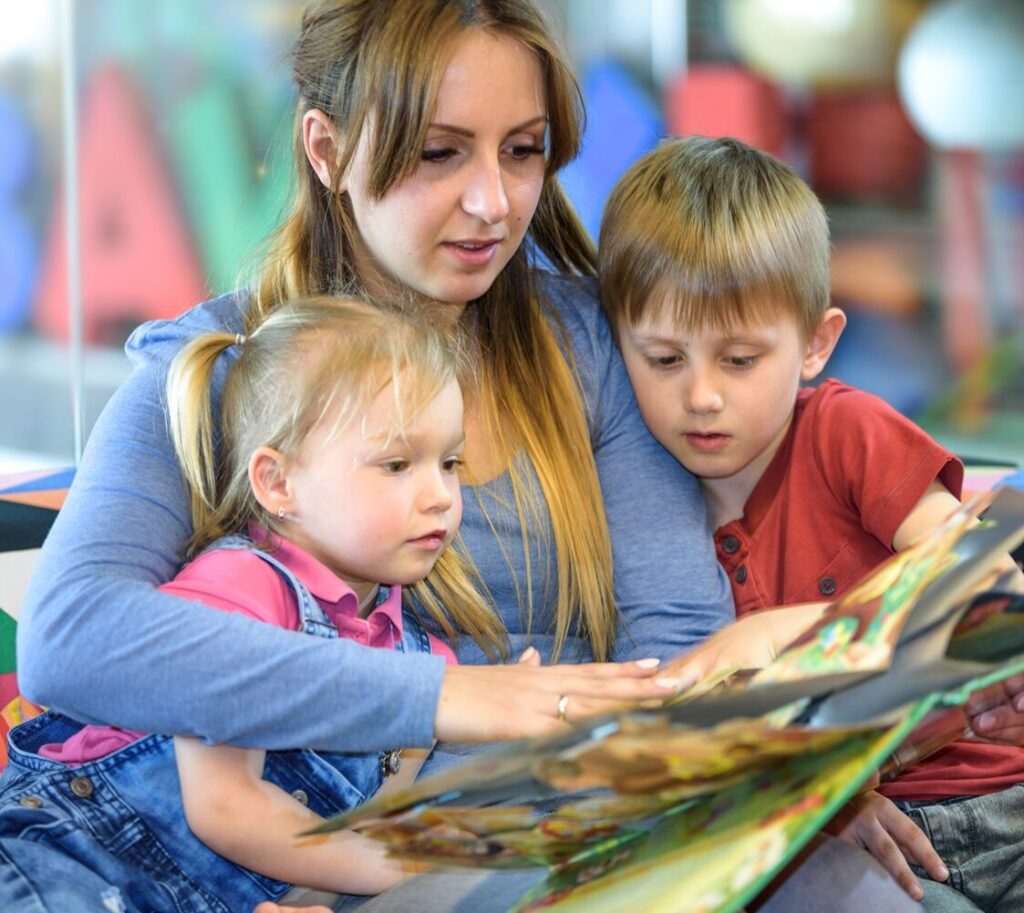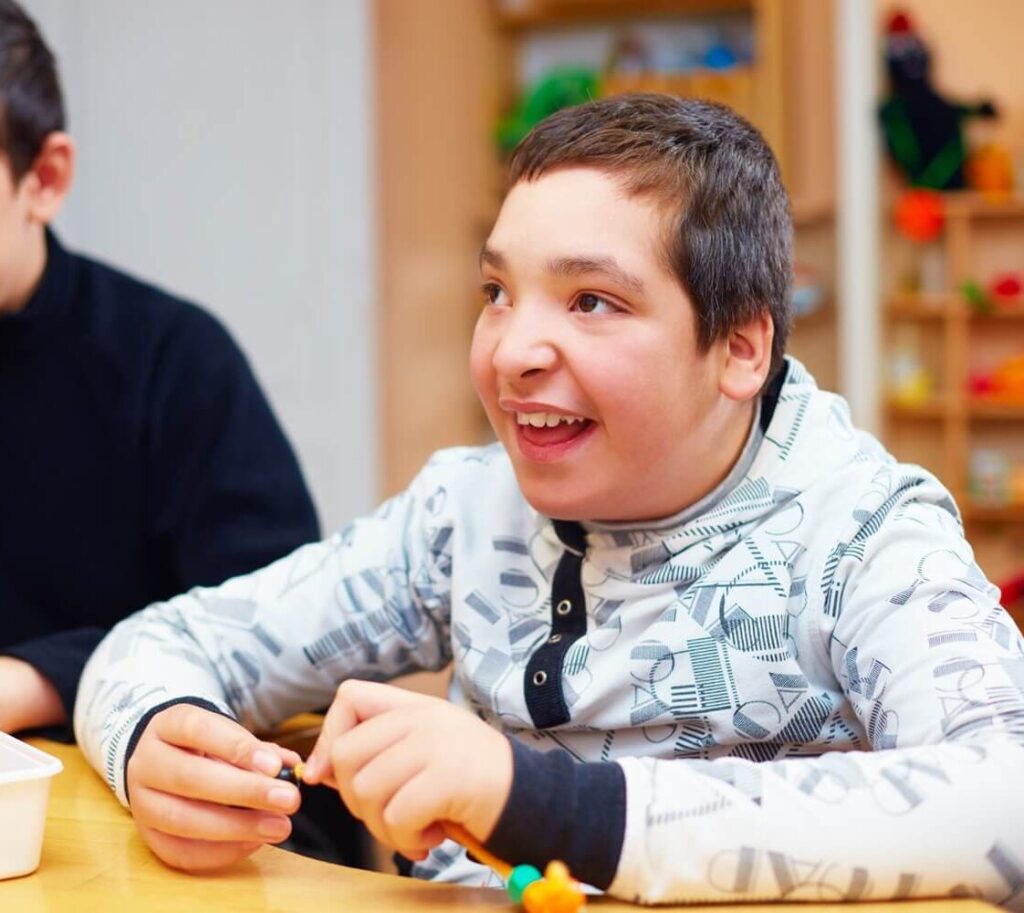For many neurodivergent people, personal care such as brushing teeth, washing hands, bathing or showering, washing and even brushing hair may be difficult. There are sensory difficulties associated with some of these activities, but another reason may be that some neurodivergent people cannot understand the value or purpose of the task. Parents and carers often ask about personal care for neurodivergent children and how to support with this, so that’s what we’re looking at today.
Showering and bathing
Some children struggle to understand why we need to wash our bodies. It can be helpful to explain this in quite a scientific way, with information about bacteria, germs, sweating and odour.
Others would rather not think about this. Instead, you could make a fun game out of washing, or if you add a competitive element. “Who can get all the bubbles off their face first?” or, “If you let me wash your face, you can wash mine!”
You could take different bottles and containers and experiment with the sizes and volumes. Take a small bottle and see how many small bottles it takes to fill a big bottle. Or you could ask some of the following questions:
- Which bottle do you think holds more water?
- These bottles are the same height, but this one is fatter – do you think they can hold the same amount of water?
- Can you fill it to the top?
- Can you empty half the water out?
Be aware of the possibility of sensory overload in the bathroom, with scents, steam, water, noisy taps running and cold air on the skin.
Be aware of the possibility of sensory overload in the bathroom, with scents, steam, water, noisy taps running and cold air on the skin. Think about ways to reduce this. Would ear plugs or goggles be useful? Think about adjusting the shower head to see which pressure of water your child prefers on their hand before they get it on their body, and let them tell you the right water temperature for them. Would a shallow bath be less scary than a deep bath?
For a child who is hypersensitive, consider how you can remove some of the sensory input at shower time. Product scents, hairdryer noise and pressurised water hitting your child’s skin could be scary, uncomfortable or even painful, so you could:
- dim the lights
- move the shower head higher up so it is less intense on their skin
- keep external noise to a minimum whilst your child is showering
- use scent free products.
Have a soft dressing gown ready to get dry in, instead of a towel, if they find towel drying overwhelming on their skin.
Allow the child to select which sponge or flannel to use. You’d be surprised how many different sponges are out there and how different they can feel on skin. Exfoliating gloves can give good sensory feedback for children who are sensory seeking.
Consider a colour changing shower head (available on Amazon) as this indicates when the water has reached the desired temperature. And a colour changing smart light can be helpful if linked by colour to the bottles of shampoo and shower gel. Each time the colour changes it can prompt your child to move on.
Teeth brushing
Brushing teeth can be another challenging element of personal care for many neurodivergent children and young people. Both the toothbrush and the toothpaste can trigger a reaction and finding a solution is often about trial and error.
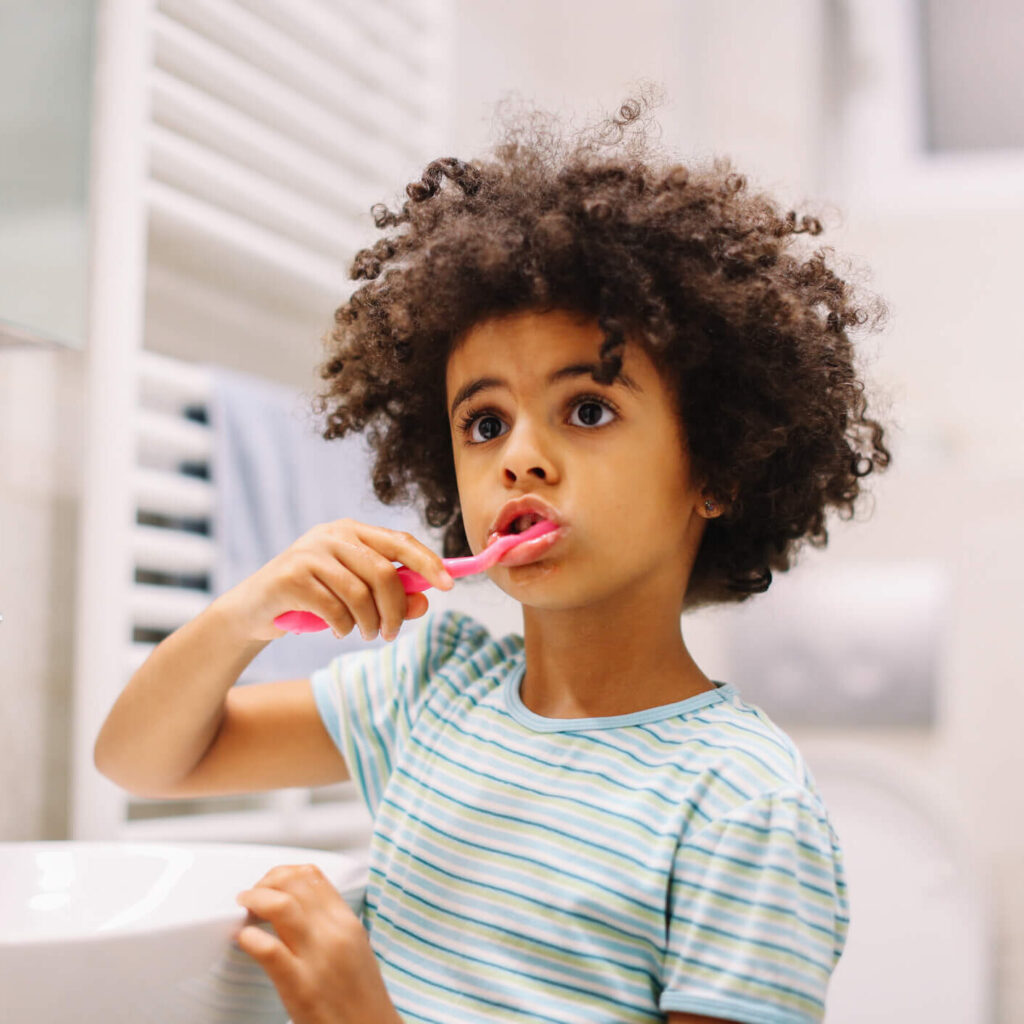
Try different toothpaste flavours or even one that’s completely flavourless. For young people who seek sensory stimulation, you could try spicy flavours such as clove or fennel toothpaste. But also remember the toothpaste texture can vary from a gritty paste to a smooth gel.
Try a manual, electric or finger-tip toothbrush, depending on preference. You may have to build up to using a brush by allowing your child to rub an acceptable toothpaste on their teeth and gums with a finger until they’re prepared to move up to a very soft, small-headed brush. You could also try having your child bite down on a sponge on one side of their mouth whilst you or they brush the other side.
There are many apps out there for toothbrushing fun, like Colgate Magik, Pokémon Smile, and Disney Magic Timer. The Brushout app (available on iPhone only) has reminders of when to brush and where to brush and a health-based focus on teeth brushing rather than animated characters as motivation.
Keeping on task
We often hear that even older children can spend ages in the bathroom without even starting to wash. They may be overwhelmed or in a bit of a trance as they deal with the sensory input of the bathroom, which could be frightening or soothing to them.
Visuals can help to remind the child or young person what to do next. For example, you could number the shampoo, conditioner and body wash. Using an app like Multitimer to set a timer for each task can prompt your child to move on. You can also use Alexa as a neutral reminder for self-care. This can be particularly helpful for children or young people who are demand avoidant.
How to make personal care fun for younger neurodivergent children
Some ideas include:
- washable crayons to draw on the tiles
- bath bombs to watch dissolve
- shower steamers
- playing their favourite music whilst in the bath or shower
- using a selection of items for sensory stimulation.
Items for sensory stimulation could be toys that are made for that purpose or simply providing cups, jugs and spoons to explore the water.
For more information and resources about ADHD and autism, see the ADHD Foundation and the National Autistic Society websites.
This article was written in collaboration with Norfolk & Waveney Autism and ADHD Support Service. Use our online service finder for SEND and neurodiversity services in your area, or find your local IASS here.
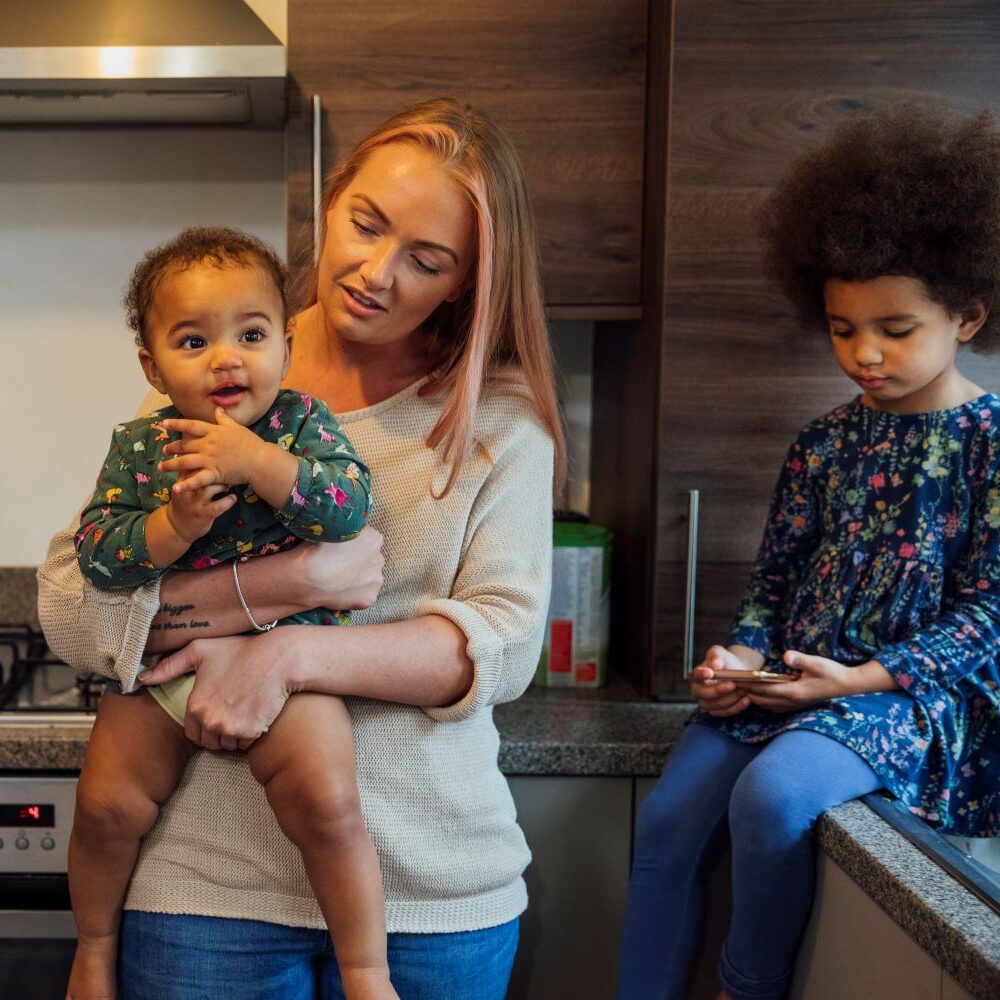
Call, text, email or web chat FamilyLine
If you’re feeling overwhelmed, worried or upset about any aspect of your family life, FamilyLine is here for you. We offer free emotional support and guidance on family relationships, conflict, parenting, caring, financial worries and more.
Contact FamilyLine